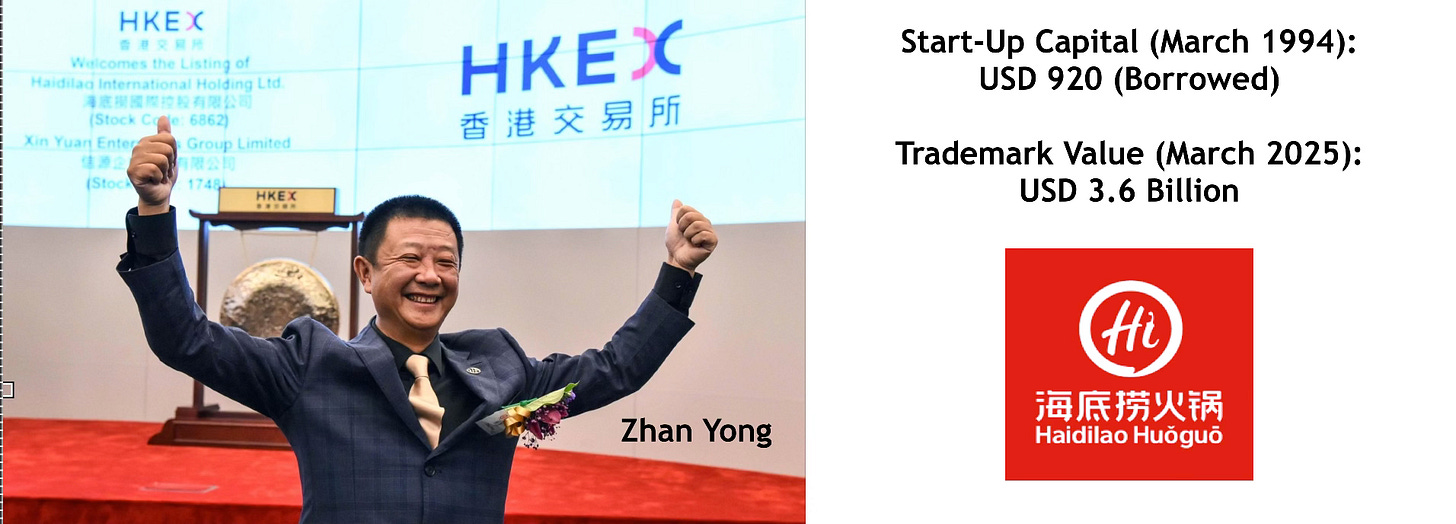Importance of Perceived Value in Business: Solving Customers' Pain Points As Ultimate Denominator
On this day and in this age, grasping your customers’ perceived value on your business and what you have to offer in your products and services is, in our humblest opinion, of the utmost importance.
Failure to grapple with this notion could inevitably be detrimental to the healthy existence, sustenance and growth of your business let alone to your customers’ well-being.
Let’s face it, in this trying economic climate, everyone is invisibly struggling in their daily lives. Oh, bemoan us for our interminable common ineluctable quotidian challenges and obstacles. To paraphrase Singaporeans, how then?
Look no further: The holy grail of inordinate commercial success that has been missing in your life or vitally your business, your lifeblood and livelihood does not ultimately veer far from overcoming your customers’ sore points. How could we mine this, you ask? It sounds simple but truthfully, it’s not that easy. However, we do have some answers below. Hop on!
Example 1: Bullet Train
On a bullet train, the fastest speed achieved is already at 603 km/h (268 mph). Although an airbus’s fastest speed is at 911.9 km/h, would adding more to the bullet train’ quickest speed increase its ridership? Supply over demand?
Absolute nope! According to international marketing experts, the commercial viability of a bullet train is not directly porportionate to the speed of the bullet train. This is because no matter how fast a high-speed train travels, there is still waiting time required.
Despite its unrivaled speed, we still need to wait for the train to arrive on schedule. If you are standing on a platform awaiting the arrival of a train, what do you see? Of course, people wearing headsets listening to their curated playlists on Spotify and holding on to their Ipads, gadgets, and what have you. Soon, it will be the virtual reality (VR glasses).
On board the train, after stowing our hefty luggage in the allocated compartments, on our seat, we still need to wait to arrive at the destination no matter how fast the train moves. Out of boredom, we would usually march slowly towards the canteen compartment on train seeking for a cup of tantalizing hot coffee or chocolate. Or treats for your ever famished kids clutching their teddy bears (no, definitely not Ted) and toys. Or, we would be just on our seats having a staring off on or totally glued to our blinding screens. Sounds familiar? These are completely the very similar antics we see on a daily basis in airports and on plane.
Simply put, we need in-flight entertainment or rather, on-board amusement, distraction and hospitality. Advertising the scenic routes (it’s a fast train for God’s sake!) or how spacious and well-designed your stations are would not bolster the sales of your tickets and draw constant ridership. You should promote and improve on your on-board entertainment instead and what you do bring on the foldable table of your trains you are running. Keep your customers perpetually glued to the screens ceaselessly satiated and gratified. Yes, provide your Wifi at the highest speed possible. Easy access to the Wifi network. No convoluted Wifi passwords or eternally filling up forms. No questions asked. No time wasted. See?
Example 2: Hotpot
Well, let’s face it, long queues do attract crowds. Hence, more clientele. Like the bagel shop around the corner of the street or block in New York. Guess who utilises this to the most optimum? Guess no further. Psst.. The most infamous and notorious hotpot chain in town: Haidilao (HDL)! Why? How?
Etymologically, haidilao typically means scraping the sea bottom in Chinese. Believably, it was derived from a Chinese proverb namely haidilaoyue i.e. “fishing for the moon”, a metaphor widely associated with a downright impossible effort (Yet?). or more specifically the Buddhist poem titled “Song of Enlightenment”. Among mahjong players, the term haidilao also refers to the serendipitous situation when one of the players wins the game through luckily drawing the last tile.
In a gist, HDL originated from Jianyang, Sichuan Province, China in March 1994. HDL went public on Hong Kong Stock Exchange (HKSE) to USD 963 million in September 2018. Next, its foreign operation, HDL, Super Hi International, was successfully listed to USD 52.7 million on Nasdaq in U.S.
Likewise, HDL also empowers the wisdom out of a bullet train instead of increasing its speed, it provides endless entertainment from which customers’ endless boredom is eliminated. Furthermore, the entertainment is supplied to their customers on a complimentary and bottomless basis.
Already synonymous with the HDL brand is the daily dazzling hand-pulling noodle performances made by their staff. Other notable performance includes Sichuan-inspired opera face-changing act. Equally mesmerizing is their team’s swift collective dance moves almost seemed to be lifted straight out of Tik Tok in real life.
HDL, instead of increasing its speed of service and cuisine delivery, they seem to go the opposite way i.e. its delivery speed is perfunctorily delayed by inundating their downstream service with breath-taking entertainment. This is all about eliminating customers’ more obvious intolerable pain points (i.e. most perceptibly boredom) that indirectly contributes to the stratospheric increment of their perceived value. Indeed, despite being a customers’ most obvious pain point, not a quite obvious solution to customers’ underlying issue.
Besides live performances, HDL also provides free snacks to munch and some ancillary desserts to be cherished pre-meal while waiting for your dining turn. Another way to combat customers’ boredom. Here, HDL does not endeavor hard to increase the tastiness of their meals and cuisines, they go providing free snacks in their waiting area conversely. Yes, this is the secret of their successes. They are not solving technicalities (they may not be engineers), they eliminates customers’ pain points (they are ruthless business people however).
Example 3: Love, Bonito
The Love, Bonito brand was established in 2006 by three childhood pals namely Rachel Lim, Velda Tan, and Viola Tan. They begun as BonitoChico through re-selling women’s clothing from South Korea and Thailand online i.e. via a blogshop hosted by a social networking service called Livejournal.
As they got more popular online, they changed their name to Love, Bonito in 2010. Gradually, they designed in-house and made their own clothing, and operated as an online and offline fashion retail operator.
After more than 10 years proffering clothings online, they eventually set up their first physical shop in November 2017 in Singapore. Erstwhile, their sight was locked in Malaysia by further setting up another first physical shop in the heart of Kuala Lumpur (KL), Malaysia’s capital, in Mid Valley Megamall. Opening in KL was their inaugural foray into foreign shores. To date (in June 2025), they already have a total of five physical shops in Malaysia. Two branches each in KL and Selangor and one strategically in Penang.
Subsequently, they landed in Hong Kong (HK). Their presence was made in HK by erecting a pop-up store in 2019 to be followed by yet another physical shop there in 2021. They made further entrance into the Japanese market in 2021 through launching an online commerce platform and a pop-up store in August 2022. They of course have plans to set their foot in and open their additional market to U.S.
Love, Bonito managed to expand their wings so fast can be attributed to the fact none other than their quick instinct in solving resiliently their customers’ pain points, which might seem menial at first glance, to impart and brand their perceived value into their client base’s mind forever.
Firstly, in their myriad of local and foreign physical shops, they conveniently provide comfy waiting areas for the husbands and kids of their shopping wives. Charging ports for mobile phones are also provided for brilliant convenience. Besides that, playing areas for kids are also provided for the husbands’ (and not excluding wives’) ease of mind. We have also heard nursing and baby rooms are provided too for the new moms out there.
Lastly, they also came up with the queuing system for fitting rooms. Once you have obtained your waiting chit, you can safely continue to browse the stores for clothes or even better, grab a cup of revigorating coffee next door. This not only gives peace of mind to the shoppers alone but also creates a healthy ecosystem of mutual commerce amongst the shops around Love, Bonito.
This concludes our tips around perceived value you can impart onto your customers’ minds, as well as creatively solving your customers’ pain points to boost the sales further in your business. Thus, we, at Longwood Assets, sincerely hope your businesses will prosper more to even greater heights next.
Contributor: Bryan Lee (Senior Manager, Longwood Assets Sdn. Bhd.)









